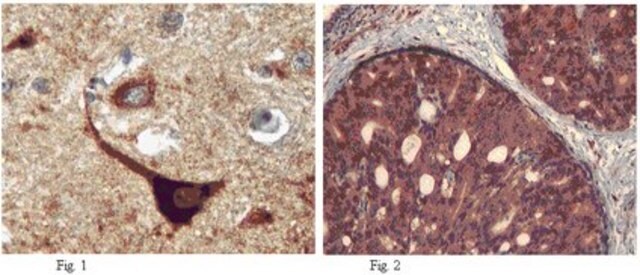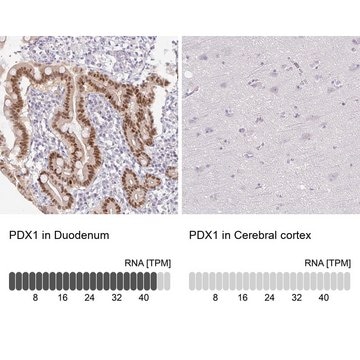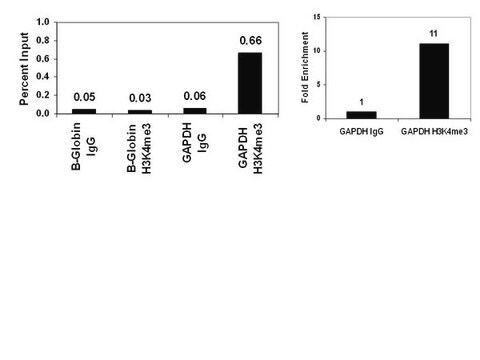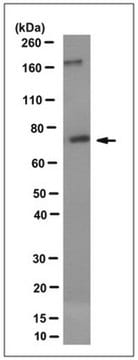MABT1350
Anti-Autotaxin (ENPP2) Antibody, clone 7A5
clone 7A5, from mouse
Synonyme(s) :
Ectonucleotide pyrophosphatase/phosphodiesterase family member 2, EC: 3.1.4.39, E-NPP 2, Extracellular lysophospholipase D, LysoPLD
About This Item
Produits recommandés
Source biologique
mouse
Forme d'anticorps
purified antibody
Type de produit anticorps
primary antibodies
Clone
7A5, monoclonal
Espèces réactives
mouse, human
Conditionnement
antibody small pack of 25 μg
Technique(s)
immunocytochemistry: suitable
immunohistochemistry: suitable (paraffin)
western blot: suitable
Isotype
IgG1κ
Numéro d'accès NCBI
Numéro d'accès UniProt
Modification post-traductionnelle de la cible
unmodified
Informations sur le gène
human ... ENPP2(5168)
Description générale
Spécificité
Immunogène
Application
Immunohistochemistry Analysis: A representative lot detected Autotaxin (ENPP2) in Immunohistochemistry applications (Kaffe, E., et. al. (2017). Hepatology. 65(4):1369-1383).
Immunocytochemistry Analysis: A representative lot detected Autotaxin (ENPP2) in Immunocytochemistry applications (Kaffe, E., et. al. (2017). Hepatology. 65(4):1369-1383).
Western Blotting Analysis: A representative lot detected Autotaxin (ENPP2) in Western Blotting applications (Kaffe, E., et. al. (2017). Hepatology. 65(4):1369-1383).
Qualité
Western Blotting Analysis: 0.2 µg/mL of this antibody detected recombinant human autotaxin.
Description de la cible
Forme physique
Autres remarques
Vous ne trouvez pas le bon produit ?
Essayez notre Outil de sélection de produits.
Certificats d'analyse (COA)
Recherchez un Certificats d'analyse (COA) en saisissant le numéro de lot du produit. Les numéros de lot figurent sur l'étiquette du produit après les mots "Lot" ou "Batch".
Déjà en possession de ce produit ?
Retrouvez la documentation relative aux produits que vous avez récemment achetés dans la Bibliothèque de documents.
Notre équipe de scientifiques dispose d'une expérience dans tous les secteurs de la recherche, notamment en sciences de la vie, science des matériaux, synthèse chimique, chromatographie, analyse et dans de nombreux autres domaines..
Contacter notre Service technique








